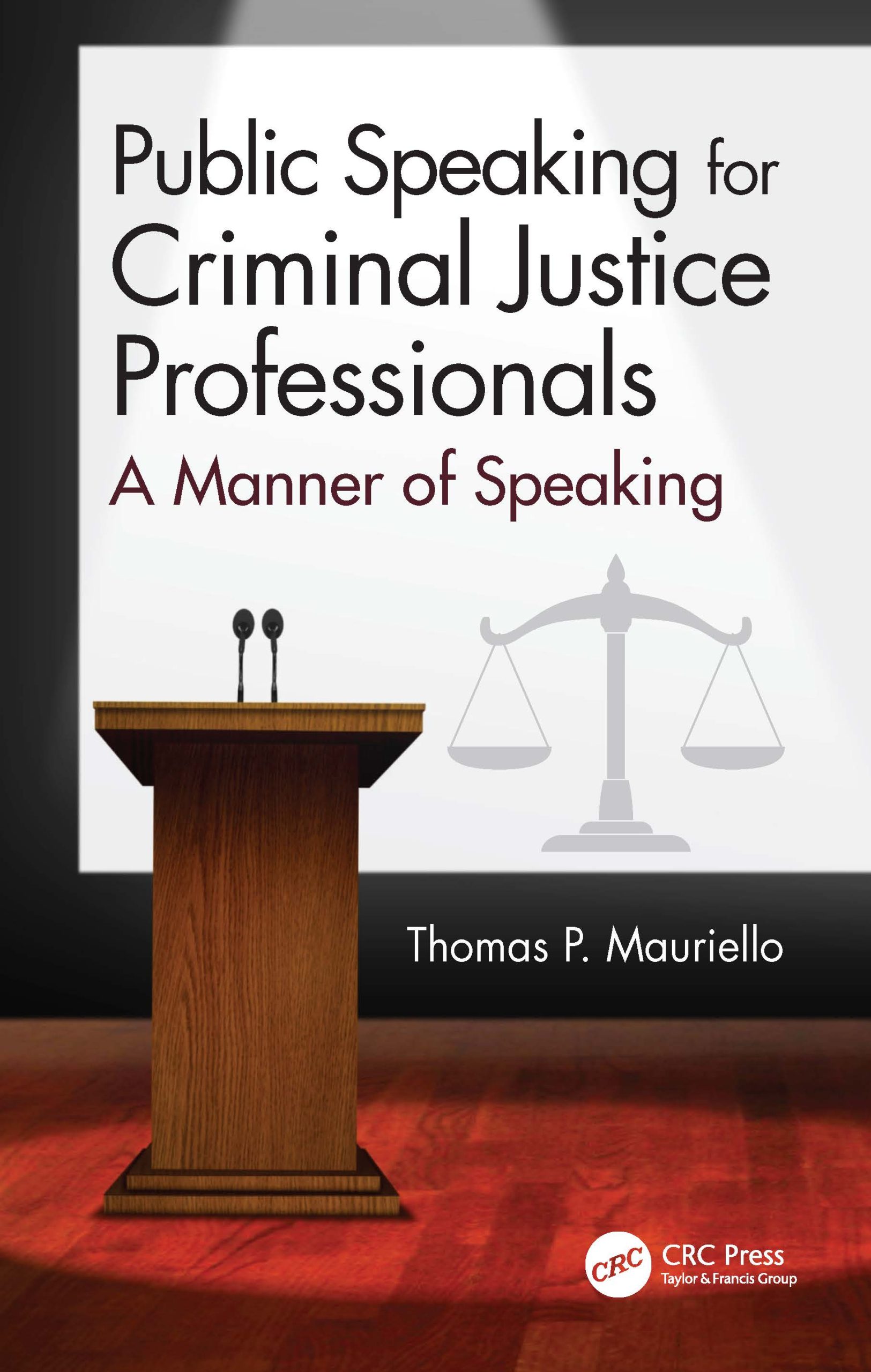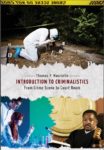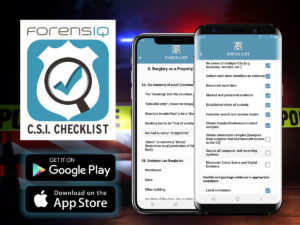Forensic Art @ the American Academy of Forensic Sciences Meeting in Seattle – 2014
A group of Forensic Arts from the US met at the 2014 Annual American Academy of Forensic Sciences (AAFS) Meeting in Seattle, Washington. See the attached article, and learn about their accomplishments.
ForensicWeek.com Show – Episode 57 – Forensic Veterinary Medicine
| ForensicWeek.com is airing Episode 57 this Thursday, April 10th at 7:00 PM (EST). The topic for discussion is “Forensic Veterinary Medicine.” The show will examine how Veterinary Medicine is utilizing the forensic sciences to bring leading investigative techniques to instances of animal crime. Forensic Veterinarian, Dr. Jodie Gerdin is the show’s guest, who is a board-certified veterinary anatomic pathologist with a specialization in veterinary forensic sciences. So join host, Tom Mauriello and student interns LIVE and archived on www.ForensicWeek.com. Thank you for watching! |
Want to wear logo apparel with ForensicWeek.com, ForensIQ or UM-CCJS logos, then go to http://forensiq-inc.com/store/ and select from the ForensIQ Online Store.
Cold Case Safety Net Course: Missing & Unidentified Persons
B.J. Spamer, Program Manager in the Forensic Services Unit at the University of North Texas Center for Human Identification, will present a 60-minute training course for all agencies that handle long-tern missing and unidentified person cases.
This self-paced on demand course will:
- 1. Provide an efficient and effective four-step process to initially address all missing and unidentified cold cases
- 2. Ensure that investigators receive maximum benefits of database searching and outside resources with a minimal initial effort
Once an initial cold case safety net response is complete, traditional cold case selection factors can be applied to prioritize cases for further investigative response. This course is sponsored by the National Institute of Justice and RTI International and is free and open to all.
Click here to learn more and register for this free course!
Source: RTI International
[Abstract written by Noel Andres, ForensIQ Student Intern, 4/3/14]
Free Course on Developing a Missing Persons Protocol
B.J. Spamer and George Adams will deliver a 60-minute presentation designed to provide law enforcement agencies with the information needed to develop protocols that will ensure consistent and effective investigations of missing person cases. The material covered in this online training course is applicable to all law enforcement agencies and will cover resources that will assist agencies to better respond to, and investigate, missing person cases. Although this course is intended for law enforcement, medical examiners, and corners, it is free and open to all audiences.
Source: RTI International
[Abstract written by Noel Andres, ForensIQ Student Intern, 4/3/14]
Body Farm
Fox Valley Technical College in Wisconsin will be creating a body farm for research and training. A body farm is an outdoor research facility where forensic scientists have animal carcasses and human cadavers in different settings where they can study decomposition. This farm will help in determining time and circumstances of death that can be used in investigation. There are body farms in Colorado, North Carolina, Pennsylvania, Tennessee and Texas. What is unique about this body farm is that researchers will be able to study decomposition in extreme cold. For those who are thinking about donating their bodies to science here’s a way to make a difference in the forensic community.
Click here for full article
Source: USA Today
[Abstract written by Alicia Terrell, ForensIQ Intern, 040314]
Fiber Identification – Getting Deeper than the Surface
X-ray photoelectron spectroscopy is a technique used to determine the chemical signature of the surface of whichever fabric is being tested. This is performed by zapping the test sample with a focused X-ray beam, knocking electrons off of the surface and into a detector to measure the kinetic energy possessed in the electrons. This technique, however, is not very effective on fabrics treated with chemicals. Using a tweaked method of this technique, Brian Strohmeier, a scientist at Thermo Fisher Scientific, a laboratory-instrument company based in Massachusetts, is able to get beyond the surface and past the chemical treatments. This opens the door to a more comprehensive analysis of the fabric and where it originated.
Click here to read the article.
[Abstract by Walter Tates, ForensIQ Inc. Intern, 040314]
The ForensicWeek.com Show – “Unresolved Crime”
| F |
orensicWeek.com is airing Episode 56 this Thursday, April 3rd at 7:00 PM (EST). The topic for discussion is “Unresolved Crimes.” The show will examine cold case investigations and how one of our guests has designed a Cold Case Investigation Model to assist investigators on how to resolve cold cases and unresolved homicides. Guests include Dr. James Adcock, Center for the Resolution of Unresolved Crime; and two return guests, retired NYPD detectives Joe Giacalone and John Paolucci, experts in Cold Case Review & Investigative Training. Want to learn what is really being done to reduce unresolved crime in the U.S.? Then join host, Tom Mauriello and his guests and student interns LIVE and archived on www.ForensicWeek.com. Thank you for watching!
Free Spanish Language Training Course for Law Enforcement Officers
The National Institute of Justice has developed a course to help officers obtain a fundamental understanding of the Spanish language and apply that knowledge to law enforcement situations. The online self-paced training course is divided into five sections:
- Basic knowledge
- Interviews
- Crime scene
- Motor vehicles
- Domestic violence
The first section provides Spanish fundamentals, descriptions, interrogatives, arrest commands, and grammar concepts, while the later sections provide law enforcement scenarios and require the user to answer questions to each scenario. This course is free, open to all, and no registration is required.
Click here to access the website and learn more!
Source: National Institute of Justice
[Abstract written by Noel Andres, ForensIQ Student Intern, 3/27/14]
Challenges in “Drug-facilitated Sexual Assault Investigations” Training Module
Dr. Marc LeBeau, Chief of the FBI Laboratory’s Chemistry Unit, will present an 80-minute online training module that will summarize the challenges associated with drug-facilitated sexual assault investigations. The course will identify evidence collection and laboratory testing strategies, and address recommendations for medical professionals, investigators, prosecutors, and toxicologists to effectively investigate drug-facilitated sexual assault cases. Pre and post course evaluations will be conducted throughout the module and a Certificate of Completion will be granted to the participant upon competition. Although this course is designed for individuals experienced in sexual assault investigations, it is free and open to all!
Source: RTI International
[Abstract written by Noel Andres, ForensIQ Student Intern, 3/27/14]
TREXPO Offers Free Training
From May 12-14th at the Walter E. Washington Convention Center in Washington, D.C there will be a law enforcement expo offering free training. There will be free access for qualified active members of law enforcement. Attendees can learn about new offerings from top vendors, including active shooter and go bags, dispatch solutions, evidence handling systems, guns and ammunition, mobile apps, non-lethal weapons, personal protection equipment, tactical response vehicles and more. The free education being offered at TREXPO includes:
- “Boston Marathon Bombing: A Collaborative Approach to Catch a Terrorist”
- “Marksmanship Under Stress”
- “Resiliency & The Bulletproof Mind: What Happens to the Mind and Body in Combat, and How to Survive and Thrive in this Environment” and “Keeping Our Schools SAFE From Attacks on Our Children: Sandy Hook, Columbine, and Beslan”
- “Tactical and Live Demos”
- “Law Enforcement Firearms Forums”
Click here for full article
Click here for more information on the expo
[Abstract written by Alicia Terrell, ForensIQ Intern, 032714]
Measuring Up – Tools for the Investigator
It is always important to use the right tools for the job, and even more important to use them correctly to improve accuracy. This principle can be applied to measuring equipment as well. With the various types of measuring tools available to investigators, it is important to know which tool is ideal for the type of situation at hand and also how to make sure your measurements are as accurate as possible when they are made and recorded. This article provides tips and pointers on tools ranging from Rolatape to laser devices.
Click here to view the article.
[Abstract by Walter Tates, ForensIQ Inc. Intern, 032714]
The ForensicWeek.com Show airing Episode 55 “Forensic Entomology”
| F |
orensicWeek.com is airing Episode 55 this Thursday, March 27, 2014 at 7:00 PM (EST). The topic for discussion is “Forensic Entomology.” The show will take a fascinating look at how crime scene insects can reveal the time of death of a corpse as well as detecting abuse in children and neglect of the elderly. Forensic Entomologist, Dr. Jason H. Byrd is the special guest, who is associate professor and associate director of the William R. Maples Center for Forensic Medicine, at the University of Florida. Want to learn what roles insects play in our lives and how they help solve crime, then join host, Tom Mauriello LIVE and archived on www.ForensicWeek.com. Thank you for watching!
Free Webinar on Non-Standard Forensic DNA Research
At the 2014 American Academy of Forensic Sciences Grantees Conference, scholars gathered in Seattle, Washington to discuss their research and findings. Many of these NIJ grantees have been invited to present their research again, but this time in live webinars. These academic presentations are the first of several events and will feature:
- (1) Development of DNA-Based Multi-Species Identification and Quantification Assays by Jillian Ng, University of California-Davis
- (2) Characterization of X Chromosomal Short Tandem Repeat Markers for Forensic use by Toni Diegoli, Armed Forces DNA ID Lab
The live webinars will air on March 18th, 19th, and 20th at 1 p.m. E.T. Upon completion each participant will receive a Certificate of Completion. Register now for a 60 minute live virtual classroom presentation as Jillian Ng and Toni Diegoli discuss topics in Forensic science, technology, and toxicology.
Click here to learn more and to register for one of the three dates!
Source: RTI International
[Abstract written by Noel Andres, ForensIQ Student Intern, 3/13/14]
Bacteria as a Measurement of Post-Mortem Interval
Body temperature and the presence of insects have been used as determinants of the amount of time that a body has been lifeless for years, but Sybil Bucheli and Aaron Lynne think that bacteria can be looked at in place of these. By studying and understanding certain bacteria already present in the human body, they believe that detecting changes over time in these known bacteria can be useful in application as a forensic tool to determine the time of death or post-mortem interval.
Click here to read more.
[Abstract written by Walter Tates, ForensIQ Intern, 031213]
Agilent Technologies Sponsors Forensic Training
Agilent Technologies is a company who sponsors free web based training. It gives professionals the chance to learn from industry experts the latest analytical tools and strategies in forensics and criminalistics. They provide web-based training for forensic and medical professionals, law enforcement and ancillary professionals. Here are a few upcoming events:
1. DART-TOF for Analysis of Bulk Drugs- Thursday, March 27
2. Controlled Substances Analysis- Thursday, April 10
3. Drugs of Abuse Analysis with the LC QQQ- Thursday, June 17
4. Designer Drug Analysis using the GC QTOF- Tuesday, Sept. 16
To learn more and to Register Visit ForensicEd
Click here for more information on Agilent Technologies
Source: RTI International
[Abstract written by Alicia Terrell, ForensIQ Intern, 031314]






